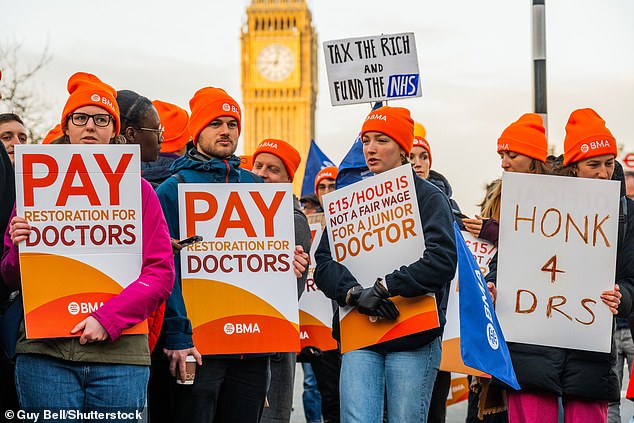271
Young NHS doctors will strike again, announcing a new wave of strikes later this month.
Doctors will take part in the picket from February 24 to 28 and the British Medical Association (BMA) said the Government had rejected their “gesture of goodwill”.

